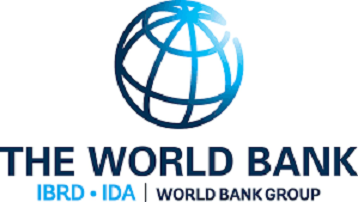
The World Bank on Tuesday called for improved infrastructure for African cities to enable them develop along with their growing populations.
Mrs Bella Bird, the World Bank Country Director for Tanzania, Malawi, Burundi and Somalia made the call at the bank’s training workshop for African journalists in Dar-es-Salaam.
Bird said that as African cities were growing in population, there was need to improve their infrastructure to fast track development on the continent.
She quoted the 2016 World Bank Report as saying that Africa’s urban population stood at 472 million people.
She said that due to urbanisation, more migrants were presently pushed to cities from the countryside with another 187 million people to be added to urban cities by 2025.
“This is the equivalent of adding another Nigeria to Africa’s population.
“Africa’s urban population will double over the next 25 years, reaching one billion people by 2040.
“Congestion and mobility problems affect the ability of people to connect to jobs, and firms to markets.”
Bird said that Tanzania was not the only country facing challenges of growing urban population many other African countries were being confronted with same problems.
“But in Tanzania, we are particularly pleased that the Bus Rapid Transit (BRT) system, which we helped to develop and finance, is already bringing relief to city residents.
“In spite of some growing pains with the system, the project is popular and effective as the average round trip travels time for commuters using BRT line has been reduced by 90 minutes a day.’’
Bird said that such transformation infrastructure investments were important for cities to increase their productivity and generate jobs for the youths.
She also encouraged African countries to leverage on the private sector to finance and execute infrastructure projects as public financing was never enough to bridge the infrastructure gap.
Bird said that the workshop organised by the bank was aimed at strengthening the capacity of the media in urbanisation reportage and related issues in the sub-Saharan Africa.
Mr Eric Chinje, the Chief Executive Officer, African Media Initiative, the resource person for the workshop, said that the workshop was aimed at improving quality reportage on the impact of urbanisation in major African cities.
He harped on the need for the media to use its influencing powers on the government and other relevant international organisations to ensure solid outcomes for African citizens.
The World Bank 2016 Report on Urbanisation titled: “Africa’s Cities: Opening Doors to the World, said that Africa was the continent most affected with urbanisation.
The bank said that African cities were 29 per cent more expensive than cities in countries with similar income levels.
It said that African households faced higher costs relative to their per capita GDP than do households in other regions such as Asia.
“For example, in Dar es Salaam, 28 per cent of residents live at least three to a room; in Abidjan, 50 per cent and in Lagos, Nigeria, two out of three people live in slums.’’
The report said that city dwellers pay around 35 per cent more for food in Africa than in low income and middle income countries elsewhere.
The one-week workshop with the theme: “Strengthening Reportage and Coverage of Urbanisation and Related Issues in sub-Saharan Africa is being attended by journalist from 40 African countries.

